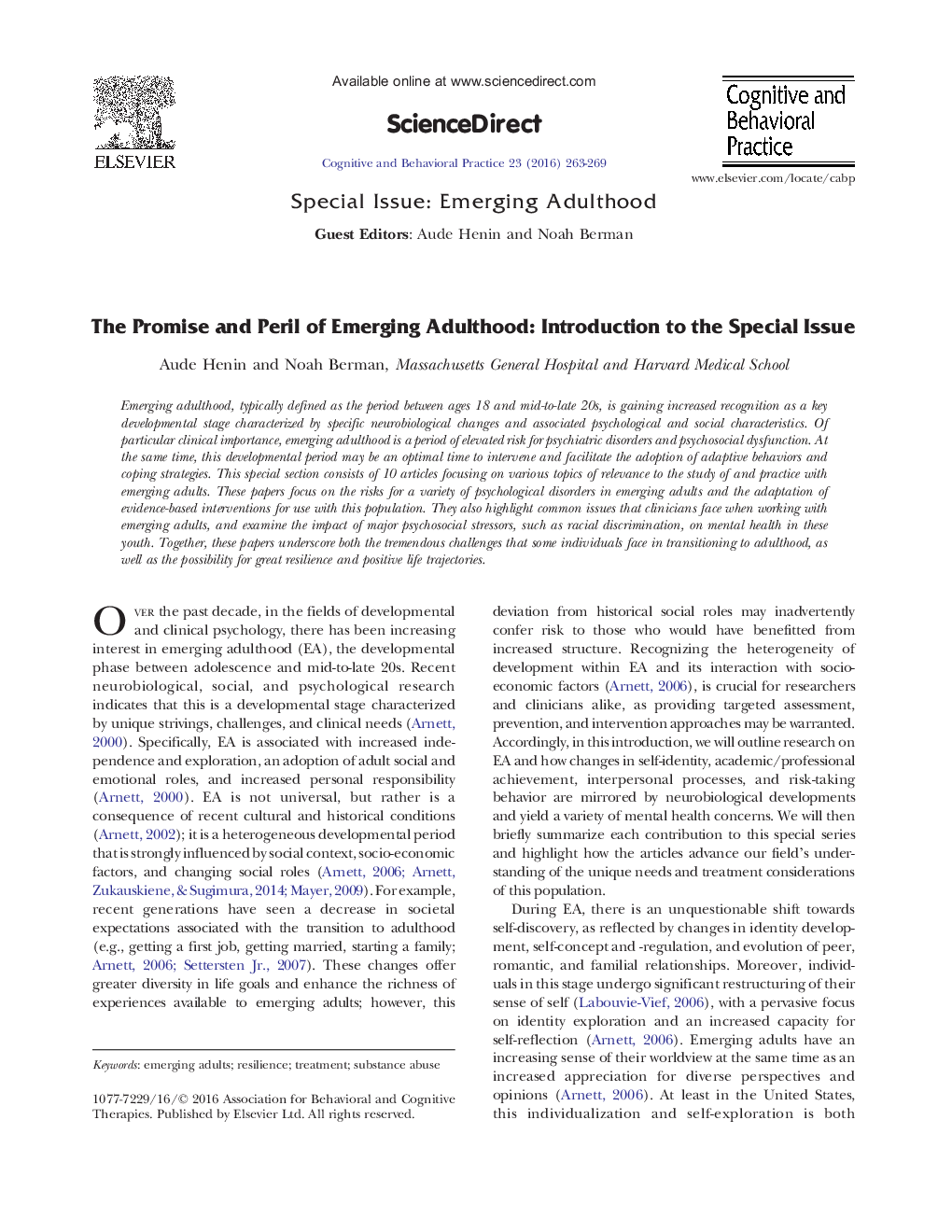| Article ID | Journal | Published Year | Pages | File Type |
|---|---|---|---|---|
| 904217 | Cognitive and Behavioral Practice | 2016 | 7 Pages |
•Emerging adults are at high risk for psychological disorders•Emerging adults benefit from developmentally-sensitive adaptations to established psychotherapies•This special issue consists of 10 articles highlighting different facets of working with emerging adults
Emerging adulthood, typically defined as the period between ages 18 and mid-to-late 20s, is gaining increased recognition as a key developmental stage characterized by specific neurobiological changes and associated psychological and social characteristics. Of particular clinical importance, emerging adulthood is a period of elevated risk for psychiatric disorders and psychosocial dysfunction. At the same time, this developmental period may be an optimal time to intervene and facilitate the adoption of adaptive behaviors and coping strategies. This special section consists of 10 articles focusing on various topics of relevance to the study of and practice with emerging adults. These papers focus on the risks for a variety of psychological disorders in emerging adults and the adaptation of evidence-based interventions for use with this population. They also highlight common issues that clinicians face when working with emerging adults, and examine the impact of major psychosocial stressors, such as racial discrimination, on mental health in these youth. Together, these papers underscore both the tremendous challenges that some individuals face in transitioning to adulthood, as well as the possibility for great resilience and positive life trajectories.
